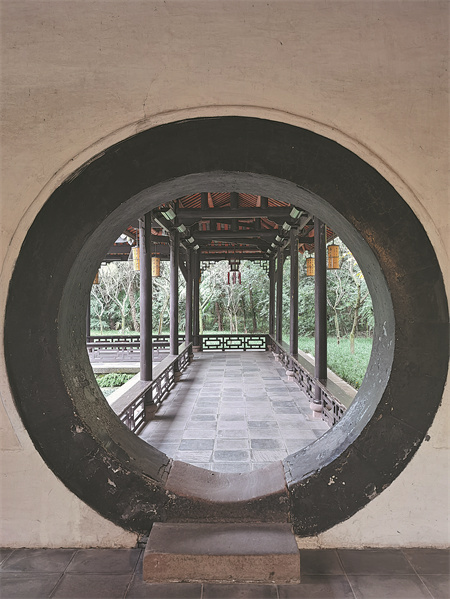

The merry poem reads:
A good rain falling
Just when it should
In springtime; riding
On the wind it fills
A whole night, soaking
The land with its goodness.
Inside the museum are bronze statues depicting the happy scene described in the poem. Visitors are so attracted to the statue of Du's son, captured in a pose of holding rain with cupped hands, that they touch the boy's bronze fingers. Because so many people have done this, his hands shine like polished brass.
Despite his relatively happy days in the cottage, after a storm destroyed the cottage roof, he pondered the fate of other impoverished scholars, writing a poem declaring he could die content in his rustic abode if the less fortunate found shelter.
Known for his compassionate portrayals of human suffering, and indignation in the face of injustice and corruption, he wrote the famous poem Song of the Autumn Wind and the Thatched Cottage, in 761.
After the sudden death of Yan, Du's financial sponsor, in 765, the poet left Chengdu and reached Fengjie in Chongqing.
Thanks to the care of a leading local official, Du was able to live in Fengjie, and he attended to 100 hectares of public land. He also rented some public land and bought 2.7 hectares of orchards. He hired several workers, and, with his family, participated in some labor.
During that period, the poet composed his masterpiece On the Height, after climbing a high platform outside the city. The scenery of the Yangtze River in autumn reminded him of his transient life, the sadness of being old, ill and lonely.